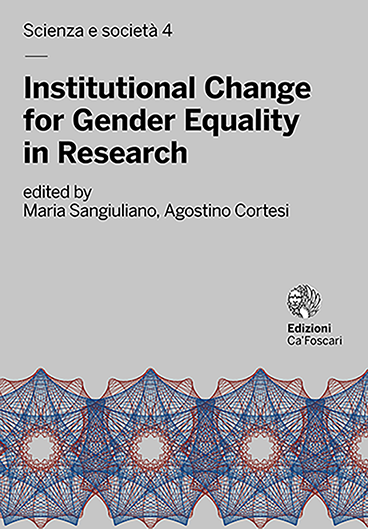- search 333 views
- file_download 12 download
- keyboard_capslock metadata
-
mark_email_readIscriviti alla newsletter
Planning Institutional Change for Gender Equality in Research
Reflections from a Study on GEPs Implementation in Europe
abstract
This chapter relies on and summarizes research and content delivered for the initial State of Art Analysis carried out within the EQUAL-IST project with the goal of providing an updated and comprehensive picture of the knowledge and practice on Gender Equality plans as tools for institutional change. Dimensions and criteria which allow GEPs adoption to be defined as good practice in terms of both methodological approach and impact have been elaborated. Based on the above mentioned criteria over 70 potential RPOs to be invited to in depth interviews were selected and finally 19 of them interviewed. Interviews’s shortcomings are summarized and analyzed based. The study provides answers grounded to literature and empirical data such as experts feedback to 2 main research questions: which are the main dimensions to define a Gender Equality Plan implementation process as a good practice? To what extent and under which conditions Gender Equality Plans can prove to have an added value as systematic and comprehensive policies in promoting structural change if compared with specific interventions or actions addressing particular inequality areas? This study has fed into the knowledge base of each RPOs EQUAL-IST Team member as a learning resource and how-to-do guide based on experiences from research institutions which have already initiated such a policy.
Keywords: Gender equality in research • Resistances • Gender Equality Plans (GEPs) • Institutional change
